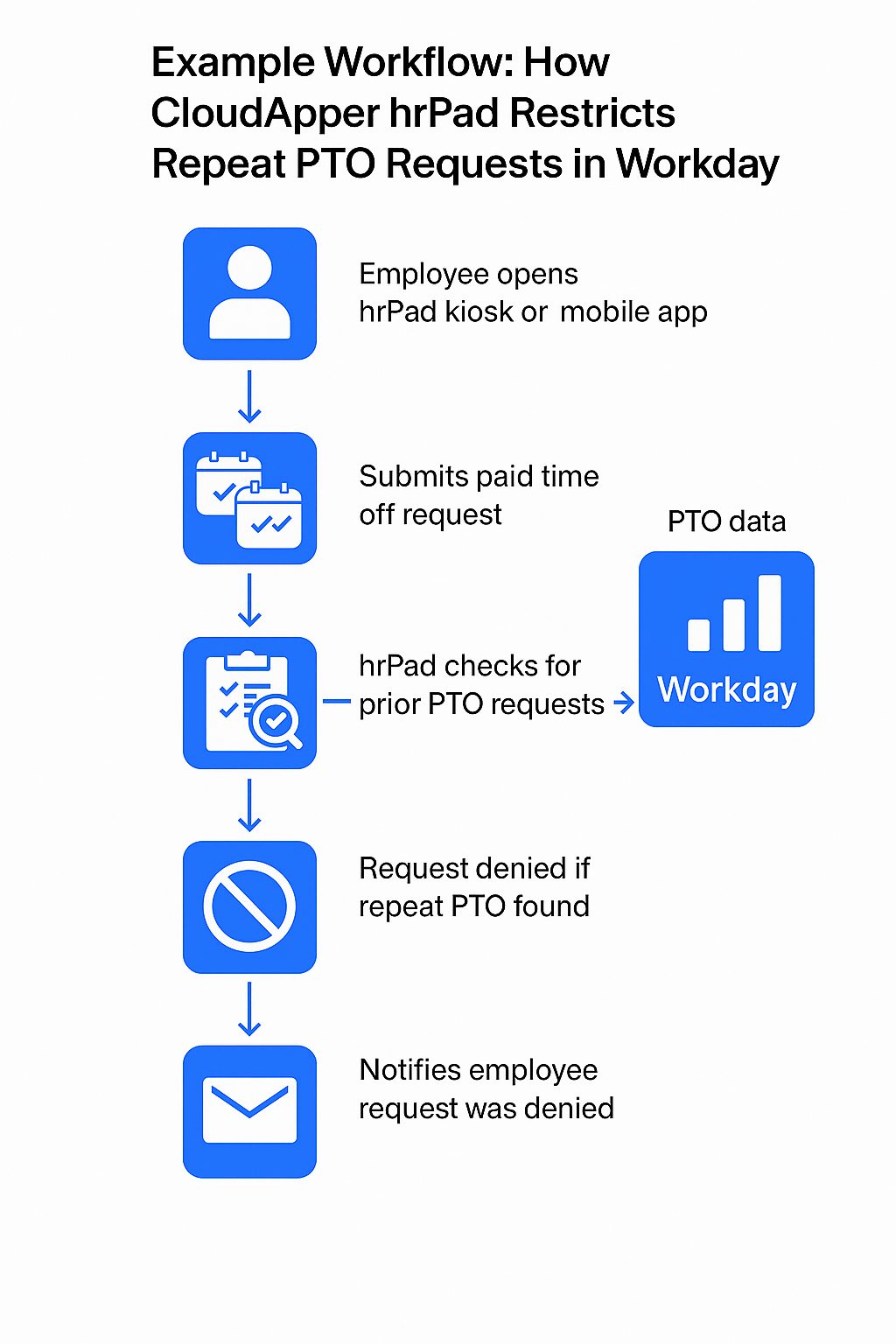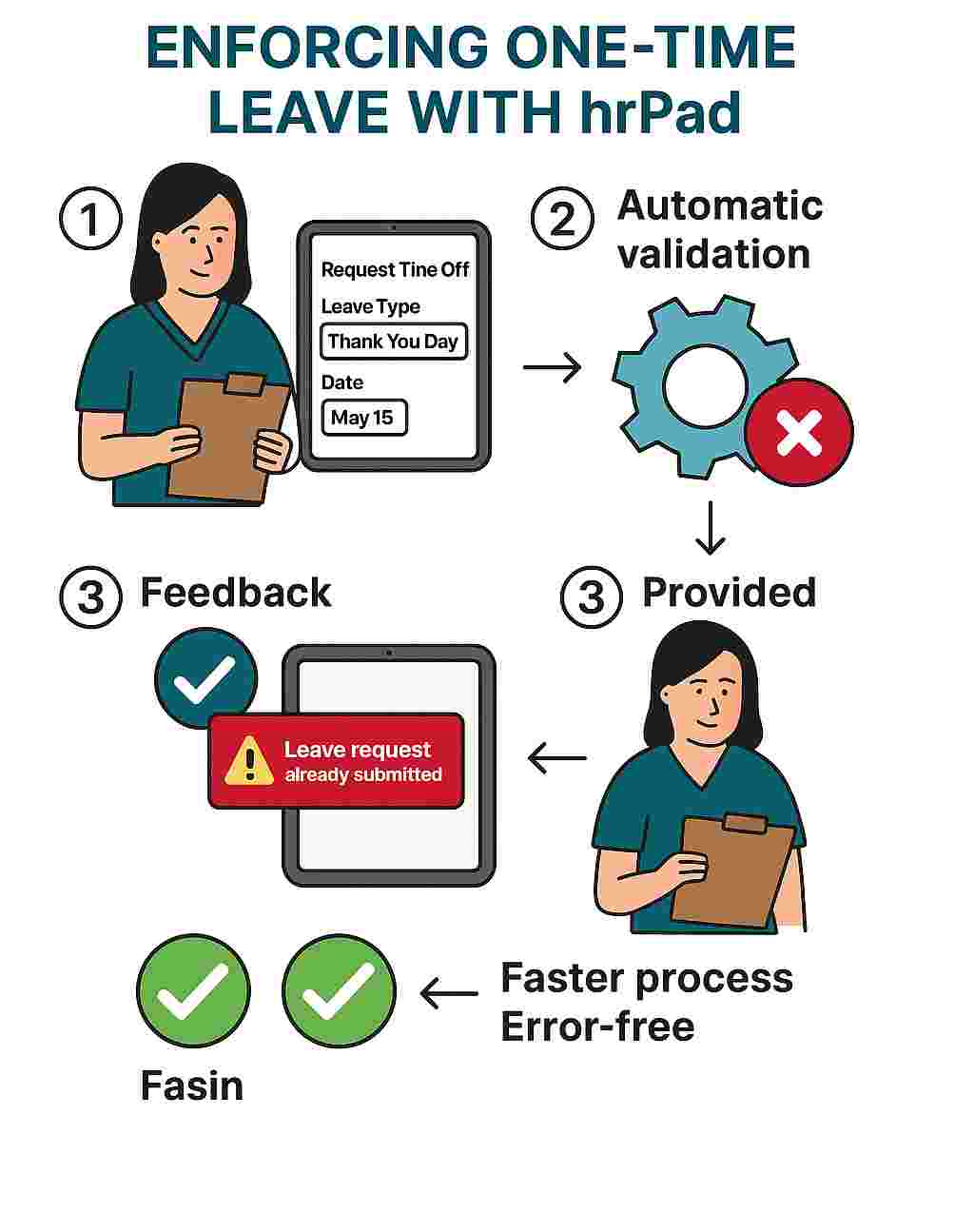Restricting PTO to a single use in Workday can be complex. With CloudApper hrPad, organizations can validate requests in real-time, block duplicates, and simplify enforcement—all without backend complications. See how one healthcare system automated one-time leave approvals for smoother operations.
Table of Contents
Restricting paid time off (PTO) requests to a single instance per employee may sound unusual. However, it’s essential in certain cases—such as bonus PTO, one-time recognition leave, or special policy grants. Implementing this rule in Workday, though, can be more complex than expected.
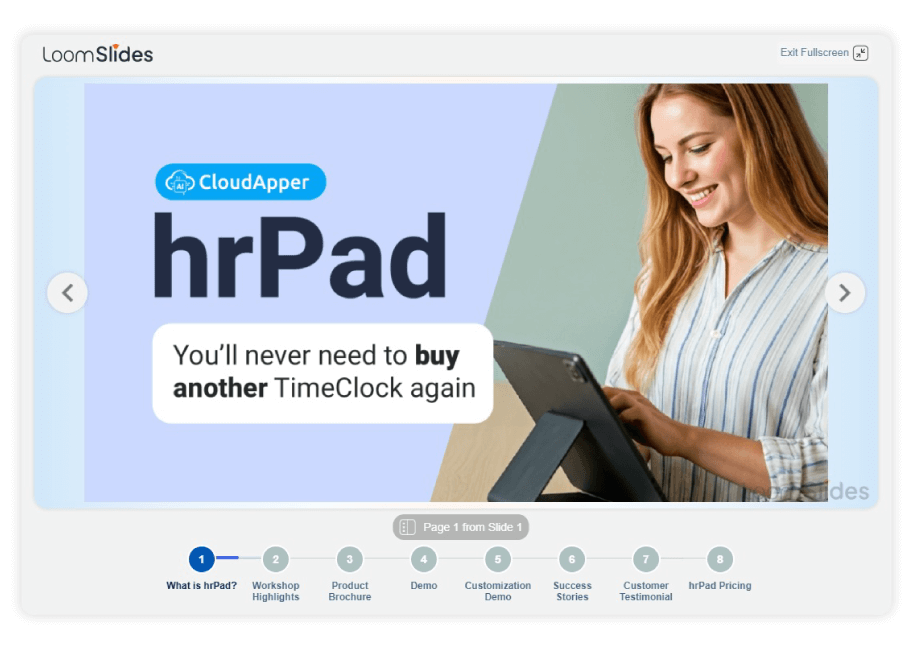
For more information on CloudApper hrPad visit our page here.
Many users discover that Workday’s Time Off Validations don’t offer a direct method to restrict PTO usage to just one occurrence. As a result, HR teams rely on calculated fields and validation rules. Even with these tools, managing one-time PTO restrictions at scale remains difficult and error-prone.
Why Workday Makes One-Time PTO Restrictions Tricky
| Challenge | Impact |
|---|---|
| No native limit for one-time requests | Requires workarounds like validation rules or custom fields |
| Complex configuration | Needs calculated fields to track past PTO entries |
| No real-time restriction | Employees can still initiate the request and face rejection later |
How CloudApper hrPad Solves the Problem for Workday
CloudApper hrPad serves as a front-end experience layer that works with Workday. It helps organizations apply user-friendly validation rules, including one-time PTO usage enforcement, at the point of request.
| Feature | Benefit |
| Real-time checks | Validates PTO usage through Workday before request submission |
| Clear messages | Alerts users if they already used the specific PTO type |
| Rule customization | Easily enforces one-time usage without code |
| Clean data sync | Only valid requests get logged in Workday |
Real-World Impact
A regional health system’s HRIS manager used CloudApper hrPad to enforce a one-time “Thank You Day” for clinical staff. Before using hrPad, they had to manually track each request and retroactively deny duplicates. After deployment, hrPad automatically blocked second submissions and provided feedback to the user.
The process became faster, more transparent, and error-free.
Final Thoughts
Workday is robust, but nuanced PTO rules like single-use policies benefit from a more dynamic interface. CloudApper hrPad adds that control—making policy enforcement seamless and user-friendly. If your organization needs to manage one-time PTO requests without backend complications, hrPad delivers.
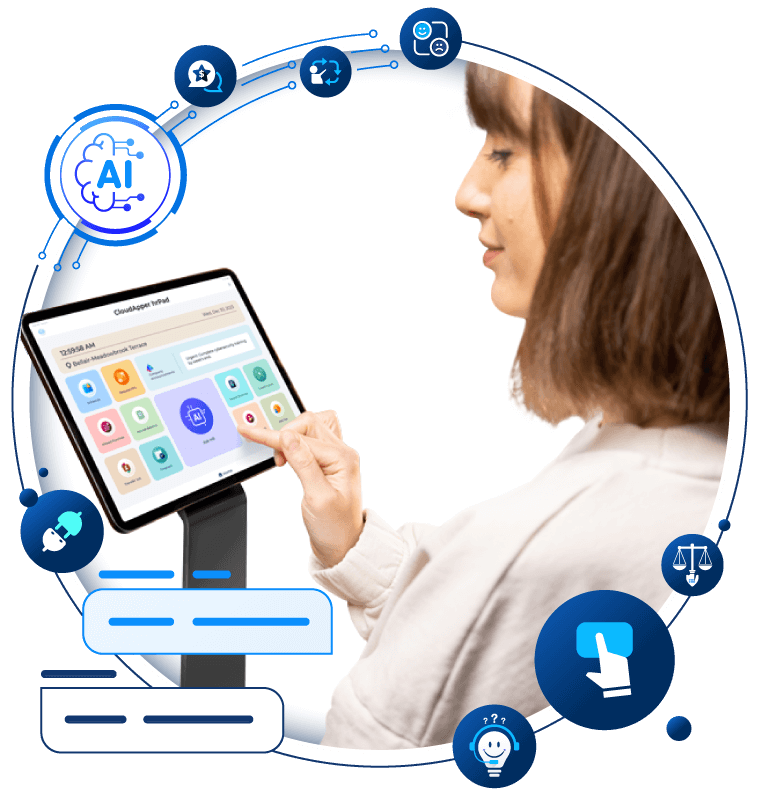
Transform Your Employee Experience With AI Tools for hrPad
Employee Self-Service tools to automate accessibility and time management.
Learn more | Download BrochureWhat is CloudApper AI Platform?
CloudApper AI is an advanced platform that enables organizations to integrate AI into their existing enterprise systems effortlessly, without the need for technical expertise, costly development, or upgrading the underlying infrastructure. By transforming legacy systems into AI-capable solutions, CloudApper allows companies to harness the power of Generative AI quickly and efficiently. This approach has been successfully implemented with leading systems like UKG, Workday, Oracle, Paradox, Amazon AWS Bedrock and can be applied across various industries, helping businesses enhance productivity, automate processes, and gain deeper insights without the usual complexities. With CloudApper AI, you can start experiencing the transformative benefits of AI today. Learn More
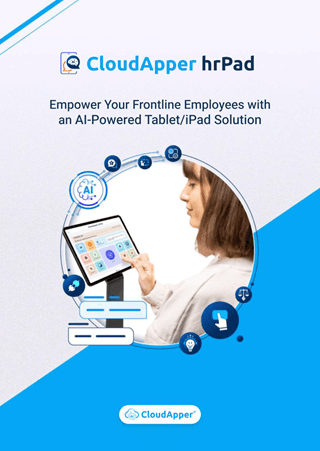
Brochure
CloudApper hrPad
Empower Frontline Employees with an AI-Powered Tablet/iPad Solution
Download Brochure
CloudApper AI Solutions for HR



- Works with
- and more.
Similar Posts
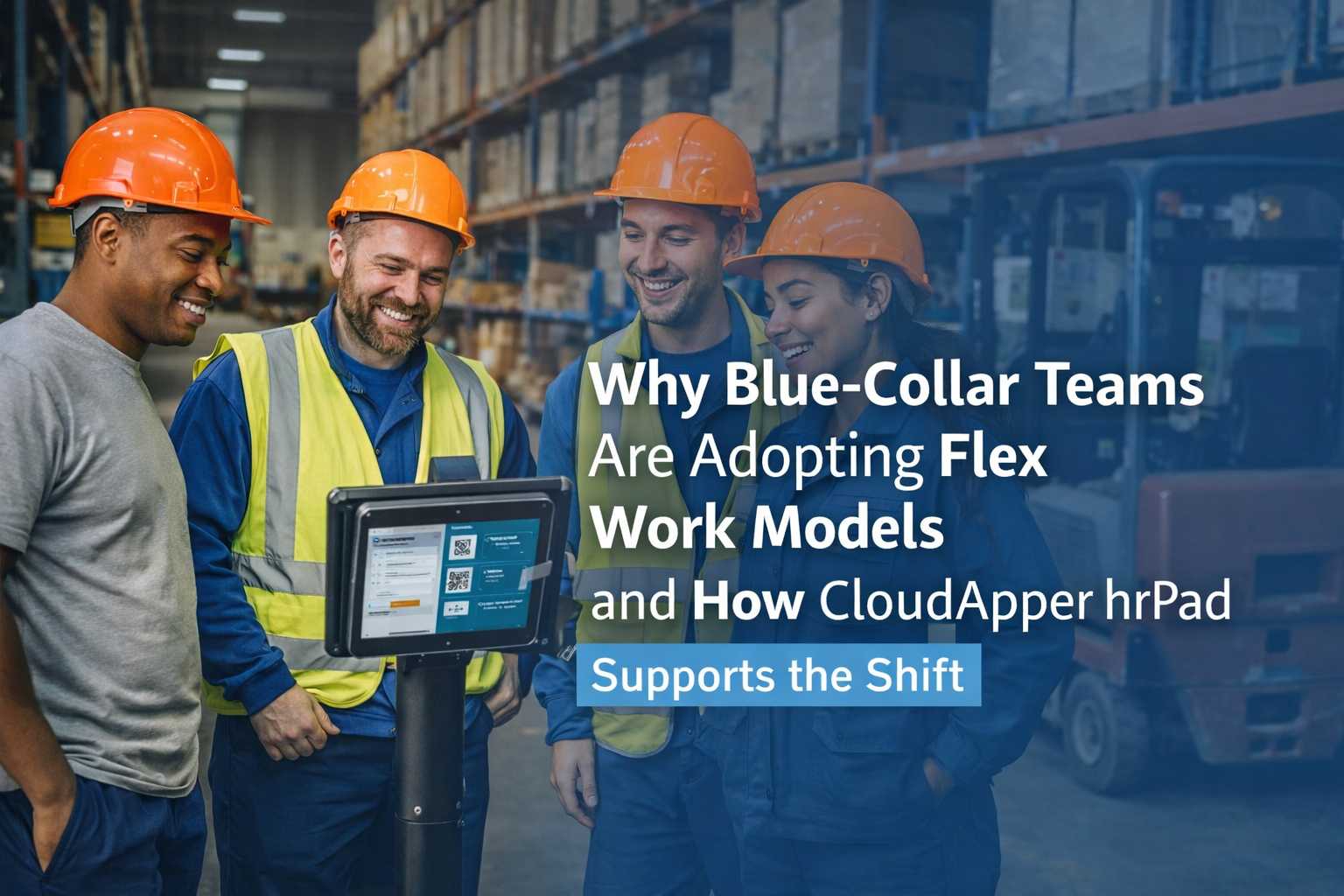
Why Blue-Collar Teams Are Adopting Flex Work Models and How…
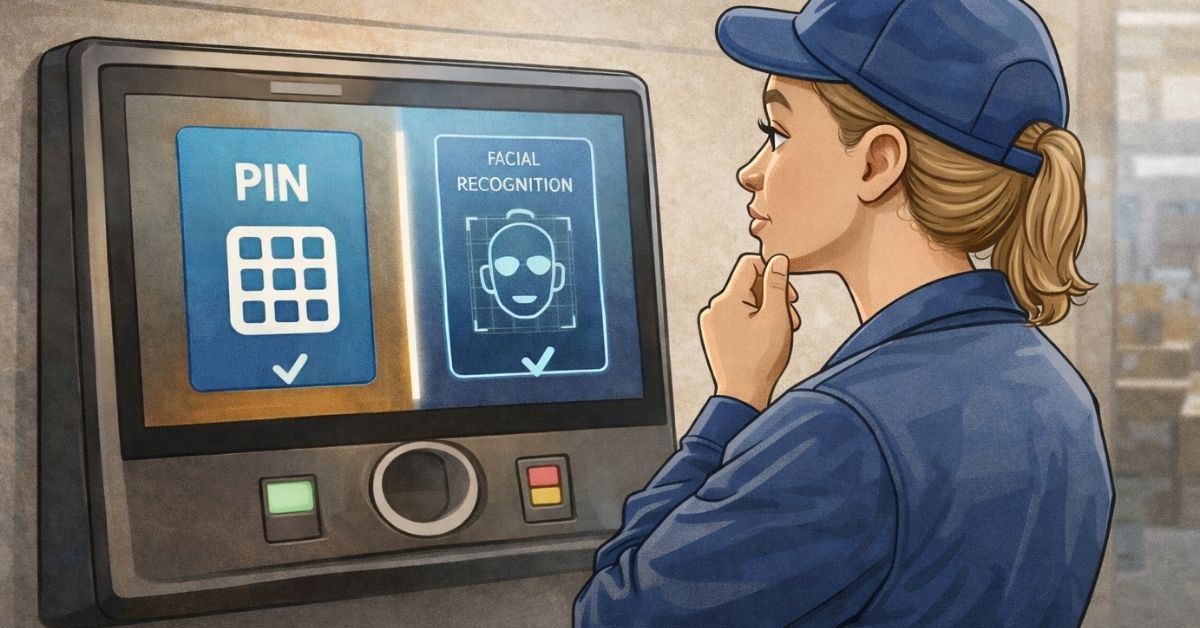
Facial Recognition vs PINs: How to Modernize Timekeeping Without Losing…


